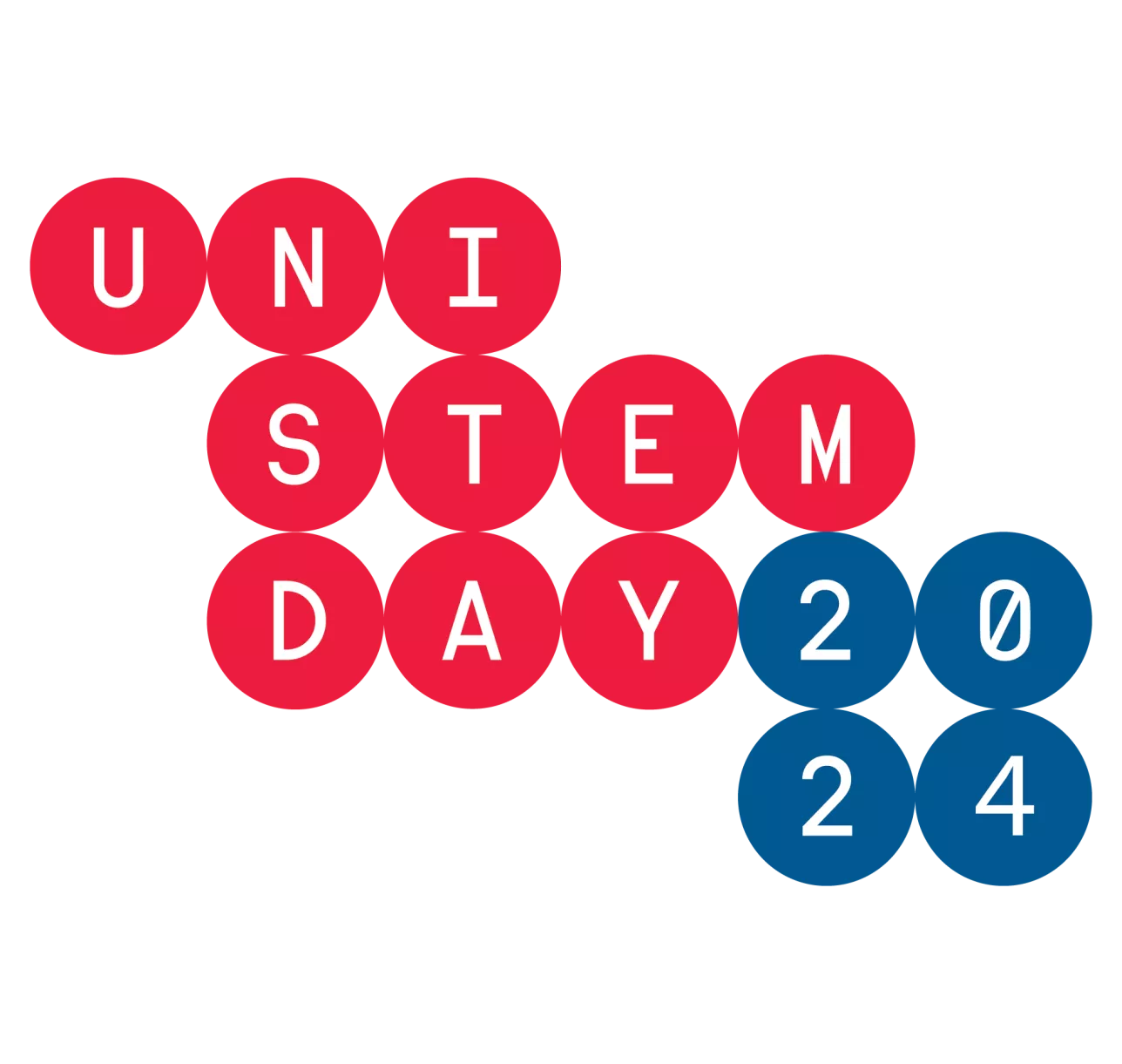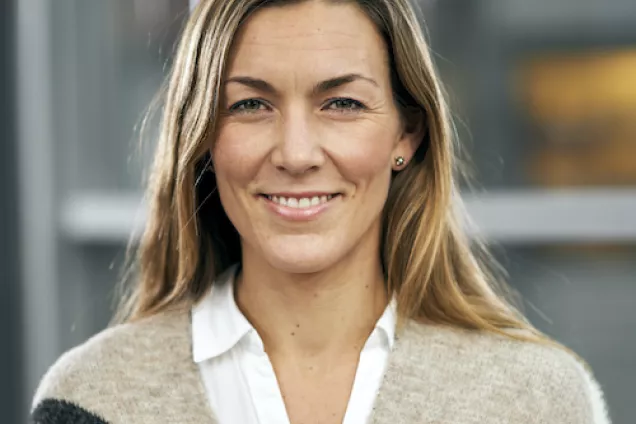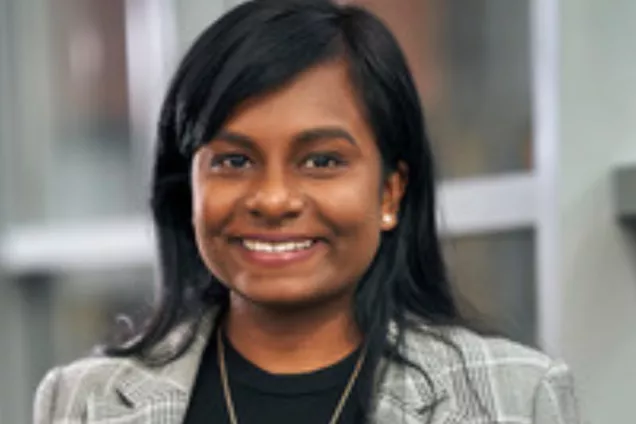UniStem Day 2024
Inspiring the younger generation’s curiosity and interest in science!

UniStem Day is the largest educational outreach initiative on stem cells and regenerative medicine in Europe. Bringing together Universities and high school students, UniStem Day is an opportunity to foster learning, discovery and debate in the field of stem cell research - inspiring the scientists of tomorrow.
Lund Stem Cell Center will host UniStem Day 2024 on Friday, 22 March, 2024, with high school students from all over Skåne. Over the course of the day, researchers from the Center will showcase their cutting-edge research, provide insights into their daily work, and explain the mechanisms behind scientific breakthroughs by offering lessons, group discussions, practical workshops, and laboratory visits.
UniStem Day 2024 Program
08.45 - 09.00 | Registration
09.00 - 09.15 | Opening and Welcome
- Opening by the UniStem Day 2024 Coordinator and Welcome Video - Dr Daniella Ottosson, Lund Stem Cell Center
- Greetings from the Director of Lund Stem Cell Center - Prof. Johan Jakobsson
09.15 - 10.05 | Lectures: Stem Cells
- “Introduction to Stem Cells” | Dr. Mattias Magnusson, Lund Stem Cell Center
- “Advanced Therapeutic Medical Products (ATMP)- A New Chapter for Medicine History” | Alice Hägg, Lund Stem Cell Center
- “Chicken Embryo as Research Model for Stem Cells” | Dr. Sofie Mohlin, Lund Stem Cell Center
- “Stem Cells in Cancer” | Dr. Emma Hammarlund, Lund Stem Cell Center
10.05- 10.15 | Practical information and presentation of workshops
10.15 – 10.45 | Fika at LUX
11.00 - 12.00, 13.00 - 14.00, 14.00 - 15.00 | Practical workshops at BMC
or
11.00 - 12.00, 13.00 - 14.00, 14.00 - 15.00 | Interactive career session at LUX: How to become a stem cell scientist?
- Dr. Henrik Ahlenius, Lund Stem Cell Center
- Student Ambassadors from the Faculty of Engineering (LTH), Faculty of Science (Biology), and the Faculty of Medicine at Lund University
12.00 – 12.45 | Lunch at Forum Medicum
(Lund Stem Cell Center provides lunch)
- Q&A session and mini-fair with representatives from undergraduate education
15.00 - 15.30 | Conclusion session with Q&A at LUX
- Closing remarks followed by a Quiz and final Q&A session with fruits/sweets
UniStem Day 2024 Workshops
Can you grow a brain in a dish? How do blood stem cells look in the microscope? How can we use viruses to fight genetic diseases? These and many more questions will be answered by PhD students, postdoctoral fellows, and senior scientists from Lund Stem Cell Center during UniStem Day 2024. Please note that workshops will be held in Swedish and/or English.
Learn more about each of our interactive sessions below:
Have you ever wondered how scientists are able to study human stem cells in the mouse brain? In this workshop, students will learn and practice how to transplant cells (mock injections) inside the brain (gelatine brains). They will practice the process of cutting a brain into thin slices, marking the proteins of different cell types using specific antibodies that recognize them, and mounting the sliced sections on slides to visualize them under the microscope. For each step, students will first get a short introduction, and later they will be able to practice the techniques. They will be encouraged to ask questions during the workshop.
Workshop Leaders:
Sara Palma-Tortosa | Postdoctoral researcher, Stem Cells and Restorative Neurology Research Group
Linda Jansson | Research engineer, Stem Cells and Restorative Neurology Research Group
Juliane Tampe | PhD student, Stem Cells and Restorative Neurology Research Group
Yu-Ping Shen | PhD student, Stem Cells and Restorative Neurology Research Group
Jonas Fritze | PhD student, Stem Cells and Restorative Neurology Research Group
Laura Rodriguez | Postdoctoral researcher, Stem Cells, Aging and Neurodegeneration Research Group
Enrico Pracucci | Postdoctoral researcher, Stem Cells, Aging and Neurodegeneration Research Group
Francesco Trovato | Postdoctoral researcher, Stem Cells, Aging and Neurodegeneration Research Group
Salamanders are amazing animals that, after injuries, are able to regrow entire limbs, tails, parts of their brains, and more. How these animals perform such feats is still not understood. We will take a peek at these animals under the microscope, looking at them during embryonic growth, since they develop completely outside their mothers. If we are lucky, these animals may also have fluorescent protein expression, so they will glow!
Workshop Leaders:
Marlene Osterle | PhD student, Regenerative Immunology Research Group
Chimezie Harrison Umeano | PhD student, Regenerative Immunology Research Group
Ameneh Ghaffarinia | Postdoctoral researcher, Regenerative Immunology Research Group
Lennart Rik | Masters student, Regenerative Immunology Research Group
We will discover why using modern sequencing techniques such as Oxford Nanopore long-read sequencing is a good approach, especially for certain research fields. We will talk in detail about its usefulness in studying the "dark matter" of our genome. First, we will explain how these techniques work, how we prepare the samples, and how we analyse the data generated.
Workshop Leaders:
Vivien Horvath | Postdoctoral researcher, Molecular Neurogenetics Research Group
Raquel Garza | Postdoctoral researcher, Molecular Neurogenetics Research Group
Anita Adami | PhD student, Molecular Neurogenetics Research Group
The human brain is three times larger than that of our closest living relatives, the chimpanzees. However, the changes leading to this size increase are poorly understood. In our workshop, we will show you how to grow and use human and monkey 'mini-brains' in a dish to study brain evolution. You will gain first-hand experience in analyzing them using immunohistochemistry and new sequencing techniques.
Workshop Leaders:
Laura Castilla Vallmanya | Postdoctoral researcher, Molecular Neurogenetics Research Group
Patricia Gerdes | Postdoctoral researcher, Molecular Neurogenetics Research Group
Ninoslav Pandiloski | PhD Student, Molecular Neurogenetics Research Group
Is it possible to grow a brain in a dish? Find out in our workshop, where you will learn what stem cells are, and how we can use them to generate brain cells for our studies. Inside a real laboratory, you will also help us grow some “mini-brains” by feeding them with fresh media, in the same way we do every day.
Workshop Leaders:
Edoardo Sozzi | PhD student, Developmental and Regenerative Neurobiology Research Group
Maria Garcia Garrote | Postdoctoral researcher, Developmental and Regenerative Neurobiology Research Group
German Passarello | Student, Developmental and Regenerative Neurobiology Research Group
We will briefly talk about the reprogramming of human skin biopsies to induced pluripotent stem cells (iPSCs), gene editing technologies, quality control of cell lines, and the applications of these cells in research and therapy. There will be a part in the cell lab and a part in the wet lab, students can be involved in both activities if they’d like to.
Workshop Leaders:
Qianren Jin | Research Engineer, Cell and Gene Therapy Core Facility
Claudia De Guidi | Research Assistant, Cell and Gene Therapy Core Facility
In this workshop, students will get hands-on experience in a basic neuroscience experiment, where they will learn how to slice mouse brains in the microtome, perform stainings, and witness the remarkable brain morphology and complexity under a microscope. We are looking forward to interacting with curiosity-driven students and explaining to them how to uncover the secrets of the brain.
Wokshop Leaders:
Constanza Aretio | PhD student, Regenerative Neurophysiology Research Group
Christina-Anastasia Stamouli | PhD student, Regenerative Neurophysiology Research Group
Efrain Cepeda-Prado | Postdoctoral researcher, Regenerative Neurophysiology Research Group
Aurélie Vorgeat | Master’s student, Regenerative Neurophysiology Research Group
Radhika Thakore | PhD student, Medical Microspectroscopy Research Group
Agnes Paulus | Postdoctoral researcher, Medical Microspectroscopy Research Group
Cells can be manipulated into different cell types using the appropriate reagents. Skin cells (fibroblasts) can be transformed into stem cells and then differentiated into neurons. Researchers are now looking at whether transplanted neurons survive in the brains of patients, and whether they can replace the function of nerve cells lost in patients in the long term. Join us for the journey of the production process of cell therapy, where you will take skin cells, transform them into stem cells, transplant them into brains and see what type of neurons are created.
Workshop Leaders:
Maria Tsalkitzidou, PhD student, Neural stem cells
Jana Bonsberger, PhD student, Developmental and Regenerative Neurobiology
Mike de Jongh, Project assistant, Neural stem cells
Did you know all your cells have the same genome, the same DNA sequence? But wait! What is the mystery behind different cells in the body then? What makes a brain cell different from a heart cell, or a muscle cell? It’s all to do with how DNA is packaged and modified - the so-called ‘epigenome’. Dive into the intriguing world of epigenetics with us and together, let’s figure out how one genome can make all the cell types of a human body!
Workshop Leaders:
Christopher Douse | Group Leader, Epigenetics and Chromatin Dynamics Research Group
Fereshteh Dorazehi | PhD student, Epigenetics and Chromatin Dynamics Research Group
Melina Koutounidou | Project assistant, Epigenetics and Chromatin Dynamics Research Group
Ni kommer att få se hur man snittar en hjärna och hur man sen märker in den med speciella antikroppar för att kunna visualisera transplanterade stamceller. I mikroskopet letar vi sen upp cellerna och tittar på hur de transplanterade cellerna ser ut. Vi kommer även att visa hur man använder avancerad 3D imaging.
Workshop Leaders:
Ulla Jarl | Biomedicinsk analytiker, Developmental and Regenerative Neurobiology Research Group
Bengt Mattsson | Imaging and microscope expert, Developmental and Regenerative Neurobiology Research Group
Sara Corsi | Postdoctoral researcher, Developmental and Regenerative Neurobiology Research Group
Andreas Bruzelius | Postdoctoral researcher, Developmental and Regenerative Neurobiology Research Group
How do you know that the cells you are working with are actually what you think they are?
Cells are transparent and do not show all their differences when you look at them in a light microscope. Labelling targets on cells with different fluorescent colours, enables us to distinguish cell types from each other, detect functional changes and separate one cell population from another. It can also help you find that very, rare, cell that you are looking for. Be your own cell sorter, and image the colourful, hidden world of cells!
Workshop Leaders:
Anna Hammarberg | Research engineer, Multipark Cellomics and Flow Cytometry Core Facility
Mette Habekost | Postdoctoral Researcher, Developmental and Regenerative Neurobiology Research Group
Cells are the building blocks of all organs, with each organ having its own cells. When we have diseases such as lung cancer or other such diseases then these building blocks are affected first. Hence in our research we look inside these cells to find out what exactly is going wrong and then find a way to fix it. In the workshop you will experience working with lung cancer cells and observing them under the microscope.
Workshop Leaders:
Pavan Prabhala | Postdoctoral researcher, Stem Cell and Cancer Stem Cell Regulation Research Group
This workshop will teach you how viruses can be used to cure genetic diseases. We will show you how viruses are produced in the lab, and how they are used in gene therapies to treat patients. You will prepare a DNA sample that will be used to produce a real virus that can be used to modify the DNA of blood stem cells.
Workshop Leaders:
Tyra Bremborg | PhD student, Stem Cell Regulators Research Group
Malavika Sreekumar Nair | Project Assistant, Cell Reprogramming in Hematopoiesis and Immunity Research Group
In this workshop you will have two parts. In the first one, a theoretical part; you will learn about a specific childhood cancer, neuroblastoma and why we need to work on embryos to understand the mechanism of this cancer. In the second part, you will work with a live chick embryo through the eggshell. You will also learn how to open an egg to see an embryo and see how we are working with them to study this disease. At this stage, a chick embryo is very close to a human embryo, so you will have the possibility to see what a human embryo looks like in the first month of pregnancy.
Workshop Leaders:
Perrine Burdeyron | Postdoctoral researcher, Molecular Physiology Research Group
Marina Mazariegos | Research Engineer, Molecular Physiology Research Group
Join us as we explore the remarkable transformation of stem cells into electrically active neurons. Electrophysiology, a cutting-edge technology, stands as a paramount tool for decoding the behavior of individual neurons or entire neural networks. Immerse yourself in the gold-standard technique of electrophysiology: the delicate patch-clamp method. Our workshop offers you the unique opportunity to actively engage with our team of scientists, participating in the preparation of a patch-clamp experiment and recording the electrical signals utilized by neuronal cells for communication.
Workshop Leaders:
Claire Piochon | Research Engineer, Multipark Electrophysiology Core Facility
We will see the main different cell types that form our immune system and are present in our blood and their most important characteristics. We will also learn the basic principles of the Flow Cytometry technique (based on fluidics and light properties) and see how can we use it to distinguish and separate the different blood cell types previously mentioned.
Workshop Leaders:
Maria Björklund | Research Engineer, Hematopoietic and Immune Development Research Group
Isabel Hidalgo | Research Assistant, Hematopoietic and Immune Development Research Group

Media Contacts:
Media är välkomna att närvara hela eller delar av dagen.
Kontakt:
- Alexis Luis, Lund Stem Cell Center, Communications Officer | ±46 73 8039688
- Daniella Ottosson, UniStem Day 2024 Coordinator | +46462220559

UniStem Day 2024 Coordinator
Daniella Ottosson,
PhD, Associate Professor
Department of Experimental Medical Sciences, Medical Faculty
WCMM | Lund University
BMC, B10, 221 84 Lund
Email: daniella [dot] ottosson [at] med [dot] lu [dot] se (daniella[dot]ottosson[at]med[dot]lu[dot]se)
Phone: +46462220559

UniStem Day 2024 Administrator
Srisaiyini Kidnapillai,
PhD, Research Engineer
Department of Experimental Medical Sciences, Medical Faculty
Lund University
BMC, B10, 221 84 Lund
Email: Srisaiyini [dot] Kidnapillai [at] med [dot] lu [dot] se (Srisaiyini[dot]Kidnapillai[at]med[dot]lu[dot]se)
Phone: +46 46 222 07 06
UniStem Day 2024 Organizing Committee
Daniella Ottosson
Daniella [dot] Ottosson [at] med [dot] lu [dot] se (Daniella[dot]Ottosson[at]med[dot]lu[dot]se)
Srisaiyini Kidnapillai
Srisaiyini [dot] Kidnapillai [at] med [dot] lu [dot] se (Srisaiyini[dot]Kidnapillai[at]med[dot]lu[dot]se)
Henrik Ahlenius
Henrik [dot] Ahlenius [at] med [dot] lu [dot] se (Henrik[dot]Ahlenius[at]med[dot]lu[dot]se)
Mattias Magnusson
Mattias [dot] Magnusson [at] med [dot] lu [dot] se (Mattias[dot]Magnusson[at]med[dot]lu[dot]se)
Alexis Luis
Alexis [dot] Bento_Luis [at] med [dot] lu [dot] se (Alexis[dot]Bento_Luis[at]med[dot]lu[dot]se)
Student Representatives:
Raquel Martinez Curiel
Raquel [dot] Martinez_Curiel [at] med [dot] lu [dot] se (Raquel[dot]Martinez_Curiel[at]med[dot]lu[dot]se)
Kerstin Laurin
Kerstin.Laurin@med.lu.se
Paula Martos Salvo
Paula.Martos_Salvo@med.lu.se

